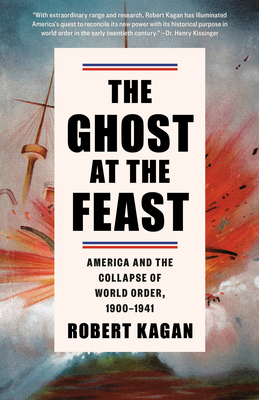A comprehensive, sweeping history of America's rise to global superpower--from the Spanish-American War to World War II--by the acclaimed author of Dangerous Nation "With extraordinary range and research, Robert Kagan has illuminated America's quest to reconcile its new power with its historical purpose in world order in the early twentieth century." --Dr. Henry Kissinger
At the dawn of the twentieth century, the United States was one of the world's richest, most populous, most technologically advanced nations. It was also a nation divided along numerous fault lines, with conflicting aspirations and concerns pulling it in different directions. And it was a nation unsure about the role it wanted to play in the world, if any. Americans were the beneficiaries of a global order they had no responsibility for maintaining. Many preferred to avoid being drawn into what seemed an ever more competitive, conflictual, and militarized international environment. However, many also were eager to see the United States taking a share of international responsibility, working with others to preserve peace and advance civilization. The story of American foreign policy in the first four decades of the twentieth century is about the effort to do both--"to adjust the nation to its new position without sacrificing the principles developed in the past," as one contemporary put it.
This would prove a difficult task. The collapse of British naval power, combined with the rise of Germany and Japan, suddenly placed the United States in a pivotal position. American military power helped defeat Germany in the First World War, and the peace that followed was significantly shaped by a U.S. president. But Americans recoiled from their deep involvement in world affairs, and for the next two decades, they sat by as fascism and tyranny spread unchecked, ultimately causing the liberal world order to fall apart. America's resulting intervention in the Second World War marked the beginning of a new era, for the United States and for the world.
Brilliant and insightful, T
he Ghost at the Feast shows both the perils of American withdrawal from the world and the price of international responsibility.











